Toddler Milks: Why You Don't Need to Buy These Formulas
- What are they and how are they different from infant formula?
- What ingredients are in toddler formulas and why shouldn't children have them?
- But if my toddler isn't eating great, aren't these just like extra nutrition insurance?
- What SHOULD 1 year olds be drinking (and HOW should they be drinking)?
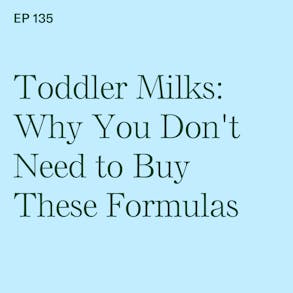
LISTEN TO THIS EPISODE
Episode Description
Does my baby need a toddler milk or a toddler formula after turning 1? What if you’re worried about growth or brain development or immunity, do these products make toddlers healthier? The answer is no, you don’t need to be buying these formula products and I’m breaking down every reason why.
In this episode we’re looking at toddler milks, the fastest growing sector of the US formula market...and for good reason. The marketing behind these products is INSANE and you’ll be amazed at how brazen the formula companies are in pushing these products (that your toddler does not need!)
Links from this Episode
- My favorite open cup for BLW: the Tiny Cup from ezpz - this is for babies 6-12 months and you can get 10% off with my affiliate discount code KATIE10 and click here to shop the Tiny Cup to start practice open cup drinking as early as 6 months of age
- Baby-Led Weaning with Katie Ferraro program with the 100 First Foods™ Daily Meal Plan, join here: https://babyledweaning.co/program
- Baby-Led Weaning for Beginners free online workshop with 100 First Foods™ list to all attendees, register here: https://babyledweaning.co/baby-led-weaning-for-beginners
Other Episodes Related to this Topic

Latest Episodes
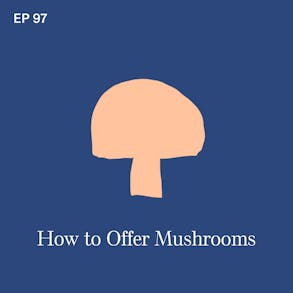
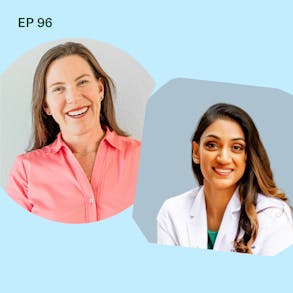
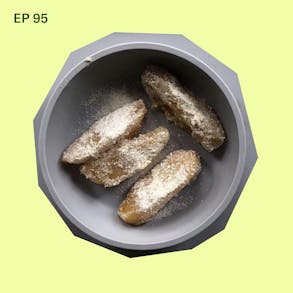
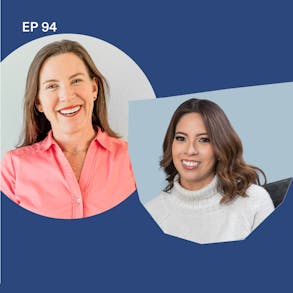

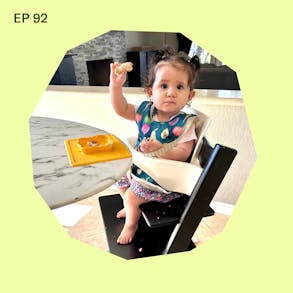
Katie Ferraro (0s):
Toddler Milks are the fastest growing formula category in the U S and for good reason, compared to the whole milk, it cost five times more for a serving of toddler formula. Plus it got added sugar and vegetable oils. I mean, this one's kind of a no brainer guys. Toddler formulas, total rip offs, actually bad for your baby. Hey, there I'm Katie Ferraro, Registered Dietitian college nutrition professor and mama of seven specializing in baby led weaning Here on the Baby Led Weaning Made Easy podcast. I help you strip out all of the noise and nonsense about feeding, leaving you with the competence and knowledge. You need to give your baby a safe start to solid foods using baby led weaning Hey guys.
Katie Ferraro (42s):
Welcome back to you. You know, all about Toddler Milks, which are also called toddler formulas or transitioned formulas. And there are basically formula products that are marketed to the parents of toddlers. And you might be like, wait a minute. Toddler's don't need formula. Toddler's are one, they can drink cow's milk and you know what you are absolutely correct. However, there are a lot of marketing dollars put in to making parents and caregivers. I think that regular milk won't cut it when your baby turns one. Now toddler formula is there are actually the fastest growing formula category in the United States. And for good reason, for those of you who have relied on infant formula, either solely as a way to feed your baby for the first six months of life, or maybe in conjunction with breast milk, regardless, the formula companies have done an excellent job at buttering you up and building brand awareness and building your brand loyalty and trying to scoot you into these products when you're baby turns won, and they do this by preying on parental fears about things like picky, eating and nutrient gaps and brain development.
Katie Ferraro (1m 50s):
But today we're going to set the record straight all about Toddler Milks and why you do not need to buy these formula products. And I like to start these mini baby led weaning trainings with the BLW typ of the day. And today's tip is not a big surprise. If you read the title of this episode, you do not need to buy toddler formula's or Toddler Milks, or if you've been buying formula for your baby, you're probably ready to be done. Buying formula, right that stuff is not cheap. And we talk a lot on this podcast about how we help our babies from the six to 12 months of age, learned to become independent eaters and help prevent picky, eating and practice drinking out of an open cup and wean off of the bottle and make the transition to cow's milk.
Katie Ferraro (2m 32s):
But we've never talked about Toddler Milks before. The reason why it is because this one's pretty cut and dry. You don't need toddler milks. I'm going to break it down. A few of the primary reasons why in case you're still on the fence about it. Now I do want to point out that there are some medically fragile children and babies who have become toddler's who still may need to be reliant on supplemental nutrition, meaning that food and cow's milk can not because of their medical condition, meet their nutrition and growth needs in case you would be working, or you should be working with a pediatric dietitian. That is the person who was trained to help your particular baby with their individual health situation, achieve their own nutrition needs.
Katie Ferraro (3m 12s):
And I are all but guarantee you the great majority of pediatric dieticians never recommend these toddler formulas and will talk about why in a second. So let's go ahead and get started talking about Toddler Milks and why you do not need to buy these formulas. Now, the way I want to set this episode today is talking first about what babies should be drinking, talking about how they should be drinking some concerns about prolonged, but bottle feeding, which kind of plays into the toddler milk discussion. And then just talking about what are Toddler Milks one or the transition formulas? What are the ingredients in these products and why should they be avoided? And then when to talk a little bit about what all of the other health body's are saying about Toddler Milks, including some of the bigger problems about Toddler Milks, hopefully you'll walk away realizing, and this is just a big marketing ploy to get some more dollars out of me.
Katie Ferraro (3m 55s):
And my kid does not need toddler milks. So what should babies be drinking at zero to six months of age, babies should be drinking breast milk and or a commercial formula. And that's it starting at around six months of age, you're still doing breast milk and or commercial infant formula, but you also start introducing solid foods. And so we don't use fluid cow's milk in place of breast milk or formula until the baby turns 12 months of age. But we do want to be introducing cow's milk protein early and often starting at around six months of age. Plus when your baby is showing the other signs of readiness to feed. If this is confusing to you and your like, wait a minute, I don't get it. I'm supposed to do cows milk protein, but I'm not supposed to do fluid cow's milk, go back and listen to episode 13.
Katie Ferraro (4m 37s):
It's all about milk protein and how to introduce your baby to this potentially allergenic food. So, no, no, but we know that babies should be drinking and we're talking about babies. This is prior to toddlerhood, right? I know they're always going to be your baby, but generally when we're talking about babies, that goes up until about 12 months of age and then from 12 months on we're referring to toddlers. So how should babies be drinking? Okay. If you're breastfeeding, it wise to be exclusively breastfeeding for six months of age. You guys, no babies don't need anything except breast milk or formula until the time they turned, six months of age, we start introducing solids at six months of age breastfeed for as long as mom and or baby wants to. If you're bottle feeding, we want to see your baby weaned from that the bottle at around the 12 month mark. Now, I like to do a little bit of a grace period from 12 to 15 months.
Katie Ferraro (5m 19s):
I got some other stuff going on when my baby turns 12 months of age, but certainly by 15 months of age, we do want to see the baby off of the bottle. And so if we're not bottle feeding and or weaning off of breast milk, or how do babies on how to drink, what do they drink out of? Well, we can start helping are babies drink out of an open cup beginning at six months of age, the goal is for babies to be independently drinking out of an open cup. By the time they turn 12 months of age. Now, granted, they will have a little bit of spillage that is to be expected, but babies don't wake up on the 12 month birthday magically knowing how to drink out of an open cup, unless we've been giving them the practice. And don't stress yourself out. If your baby's six and half months of age, when you haven't started open cup drinking promise you. I never got around to it until my babies were about eight months of age.
Katie Ferraro (6m 2s):
And they all learned how to drink independently from an open cup by their first. So it just put it on your radar. The cup that I like to use baby led weaning was the cup designed by a baby led weaning expert. My good friend and colleague Dawn Winkelmann. She is a speech language pathologists and pediatric swallowing expert. She's also the leading expert for the feeding gear company, EZPZ. So she created the tiny cup, which is an award-winning baby led weaning silicone cup. That's for babies aged six to 12 months of age. I love that cup. I practice a few times, maybe five minutes after each meal. You can start when you were maybe six months of age, or I do a closer to eight months of age, five minutes after each meal, or your baby will become a proficient drinker out of an open cup.
Katie Ferraro (6m 42s):
Yeah, no time. If you want to check out the easy-peasy tiny cup, the code is Katie 10. That is my affiliate discount code for 10% off at ezpzfun.com. If you're working with older babies at 12 months of age, who transitioned from the tiny cup to another cup that Dawn designed called the mini Cup. They look similar to that actually have quite a different design. The portion sizes are different. Make sure you're doing the tiny cup for six to 12 month olds and the mini cup. When you're a baby hit the 12 month mark and beyond. Now, you might be like, wait a minute. Don't babies go from breast or bottle feeding to a sippy cup and then, and open cup. Nope. We totally want to bypass the sippy cup. It did a great episode with Dawn called six reasons to skip the sippy cup.
Katie Ferraro (7m 23s):
That episode number 40. If you go to the BMW podcast.com/four zero, you can listen to that, but we go into all of the issues and the drawbacks about drinking out of sippy cups, but also prolonged bottle feeding. And there's the potential to over consume milk. If we let the baby stay on the bottle or the sippy cup, they then don't eat enough food, which means they do you get enough iron there's increased risk of getting dental cavities there's issues as Dawn explains with delaying speech milestones. So we really want to be cognizant of not only what our babies are drinking, but how there, okay, so that's everything up until the time you're baby turns, 12 months of age. Now, ideally at 12 months of age, we want your baby to transition to cow's milk. I've done a whole podcast episode on this topic as well.
Katie Ferraro (8m 4s):
That's number 113, it's called transitioning to cow's milk. How do I do you do this to go back and listened to that? If this is news to you, but again, 12 months of age, we want the baby on cows milk, unless your baby is allergic to cow's milk protein. And you confirm that you're working with an allergist or your family is vegan and you don't drink cow's milk products. There is no reason not to do cow's milk. In that episode, 113, I talk about how toddlers can live with significantly less cow's milk than a lot of parents think. But the point is you don't need to be buying a specific formula. These formulas are called Toddler Milks or Toddler formulas. And basically what they involve is a powdered milk drink that supplemented with nutrients or formulations that are specific for toddlers age one to three years old.
Katie Ferraro (8m 49s):
And they indicate that on the product packaging or the official brand website. So they're not allowed to say, or they're not allowed to support. It's an infant product, right? Because we, we need infant formula. If we can't feed breast milk, it does need to be specially formulated because cows milk is certainly not appropriate to meet baby's nutrition needs up until age one after one, they are eating all sorts of food. You put a little cow's milk in there. Boom, everything is fine, but the Toddler Milks, but also called toddler formula or follow up formulas. No, sometimes you also hear about transition formulas. Transition formulas are a sub category of toddler milk that brands has specified as being appropriate for both babies younger than 12 months of age and for older children. So again, they have to say that on the product package or the official website.
Katie Ferraro (9m 32s):
So an example would be, and for grow makes a toddler transition product for children age nine to 18 months. OK. These products do utilize the infant formula, nutrition facts panel. What they basically do is they make you think, oh, well, I'll get them started on at nine months of age. And then we can just continue that through toddler-hood the reality is a nine-month old if they are still receiving formula because their not getting breastmilk. Yeah, they are getting some food from there diet, but there are perfectly fine to be having an infant formula at nine months of age, stop the infant formula at 12 months of age and transition to cow's milk. You don't need a transition formula because to transition formula wants to keep you buying formula from 12 months to 18 months when it's completely unnecessary.
Katie Ferraro (10m 13s):
Now, some of the common ingredients that we see in Toddler Milks products include fat-free cows milk, vegetable oils, and added caloric sweeteners. Here's the deal with cows millk babies who are one can drink cow's milk, but we feed them whole milk. Not skimmed, not reduced fat, not non-fat not low fat babies need that fat from the full fat cows milk in order to help there still are developing brains and there are still learning how to eat other sources of fat. We generally feed the full fat, whole milk cows milk products for babies from age one until age to, and then after age to it's okay to start introducing reduced fat milk products. The fat-free cows milk base is the base of the toddler milk products.
Katie Ferraro (10m 53s):
And then they add vegetable oils back into it in order to add the fat and the calories that babies need. But the problem is that they also add caloric sweeteners, no caloric sweeteners are added sweeteners or added sugars. We'll talk a little bit about some of the drawbacks of that. But bottom line is we don't give babies or toddlers anyone up until age to any added sugars from foods or beverages or even the American academy of pediatrics, which to be honest, isn't always on the cutting edge with regard to the nutrition research and infancy and childhood, or even AAP. He says no added sugars in any foods or beverages given to any child until the age to say, why would you ever go to the store and pick a toddler milk product off the shelf that has added sugar in it?
Katie Ferraro (11m 37s):
It's just completely unnecessary. Babies can drink full fat, whole milk cows milk. Now is these products are the fastest growing category in the U S formula market. Does everybody love them? And the answer is no registered dieticians, infant feeding specialists, all of my which colleagues, we work very hard to bring awareness to the fact that Toddler Milks are not necessary. The centers for disease control says, and there's a number of different consensus statements out there from different health organizations. But CDC says Toddler Milks, drinks or formulas are not necessary to meet the nutritional needs of older babies is that age 12 months, your child can be introduced to fortified cows, milk, fortified, cows, milk.
Katie Ferraro (12m 17s):
It has added vitamin a and added vitamin D. When you look at some of these Toddler products are the ones that cost a lot more than cow's milk. They'll say there are fortified with vitamin a and vitamin D Hey, guess what? So is regular cows, no babies younger than age of 12 months. Yes. They definitely need infant formula specifically designed to meet their nutritional needs, but infants should not be fed any of these toddler drinks or formulas that are labeled for toddlers because they're not nutritionally complete. And what are some of the problems with these toddler? No. Okay. As I mentioned, they're the fastest growing formula category in the United States. It's total money maker. Before we look at the money, let's look at the health stuff. Parents buy these products because of the perceived benefits from added ingredients that are not supported by scientific evidence.
Katie Ferraro (12m 59s):
For example, you'll see plastic like in the front end. It's hard it on a podcast. This has like a really great visual to show you guys, but just look up the labels of some of these Toddler products. And they'll say there's DHA in there. That's a type of fatty acid that is linked to cognitive development. Well, guess what? You can get DHA from feeding your baby. You fish. It's actually one of the big eight allergenic foods. We should be feeding fish early and often it's way more affordable. It makes a lot more sense to feed your baby fish than it is to go buy a defatted milk product with added oil in added sugar and some DHA in there. There's health claims about reduced lactose are these help with digestive health or fussiness or gas? I guess what your baby's gut is adjusting as your baby is moving towards a solid food diet.
Katie Ferraro (13m 41s):
There's some fussiness, there's some gas there, or some constipation. You do not need to go buy an overpriced toddler formula product to help alleviate that it doesn't work that way. They are not supported by science and actually reliance on milk products. Lends to diets that tend to be lower and dietary fiber, which can actually make digestive problems worse. We want babies eating naturally occurring sources of fiber. They don't need to be drinking Toddler Milks products. There's also health claims for things like prebiotics and probiotics, and that these Toddler Milks are immune enhancing. And I was reading some of the ads and the copy for these products, just to the preparation for this episode, literally like, you know, babies, they are always getting into stuff and they're super dirty.
Katie Ferraro (14m 23s):
So you really want to help their immune system by offering them this toddler form that you know, what else has prebiotics and probiotics, fruits and vegetables, whole grains, dairy products without added sugar in them. You don't need to be buying a supplement product for your one-year-old for things like immunity and digestive health and cognitive development. We use real food to help achieve those needs. There's a lot of confusion with the marketing of these products. There's cross branding of infant formulas. If you've always Enfamil from the time your babies, it was zero until 12 months of age. And now there is something called and for grow for 12 months and beyond. If you weren't very educated, what about nutrition? Or if you didn't read the labels closely, or you didn't know that babies could drink cow's milk or your pediatrician is not having these conversations with you, you might just think the logical progression is I'm just gonna buy the next step in the line of this product and this brand, which I do it was, but there are a lot of misleading marketing practices.
Katie Ferraro (15m 18s):
There are a number of child development messages that are plastered all over the products. In fact, one study found that 85% of Toddler drink packages had misleading statements about child development. So your baby's brain needs this, your babies growth needs this, your babies health. The depends upon to this. Unfortunately, fresh fruits and vegetables and whole grains and fish and meats and dairy products. They don't have the marketing budget behind them that all of these formula companies do. My biggest problem with Toddler Milks. However, is that they contain added sugars one or the very popular brands out there. That's owned by Nestle, which is the largest food company in the world. If you look at the label in a serving there's six grams of added sugar, in what way, it would be the equivalent of a cup of milk.
Katie Ferraro (16m 3s):
Now in a cup of milk, there are zero grams of added sugar. There's naturally occurring sugar that is from lactose. We're talking about added sugar, the sugar that no children up until age to should have at all. And yet here's a toddler that adds the sugar. And if your like six grams, it doesn't mean very much to me, a packet of sugar, like what you would see at Starbucks. For example, that's four grams of sugar. It, teaspoon of sugar is four grams of sugar. So six grams of added sugar in a cup is about one and a half. Teaspoons are one and half packets. If you look at the amount that they recommend children be served when they're selling these products, it's upwards of three to four servings a day. So essentially you will be getting like the equivalent of five packets of sugar that you could just be pouring into the milk product with some added fat from the vegetable oil and saying that this is a product that you should then be buying for your baby instead of cow's milk.
Katie Ferraro (16m 52s):
So that added sugar is a major, no other brands have for grams of added sugar and some have six grams of added sugar. Is there are still one out there. It has eight grams of added sugar per serving. It doesn't matter at the end of the day, added sugar. Was that it? Sugar is that it sugar. And there's just not room in the nutrient budget of a developing toddler to be having added sugars from any sources, period. End of discussion. Another concern about the Toddler Milks is the cost they're significantly more expensive than milk. I just did an analysis at my local targets. I live in San Diego, $19 to get a 19 portion canister of one of the well-known products. It works out to basically a dollar a cup now, a gallon of milk two dollars and 99 cents.
Katie Ferraro (17m 35s):
That 16 cups of milk work's out to 18 cents a cup. We're talking about a dollar, a cup compared to 18 cents a cup. Essentially these products are more than five times as expensive to purchase. And for absolutely no reason when you buy whole cows milk for your one-year-old, it's got vitamin a and there its got vitamin D it got calcium in their, and you should be feeding a variety of other foods to help the baby's get these other nutrients they need. They don't need to be coming from the added sugar formula products. And so I'm talking a lot about the marketing of these products today. A lot of the ads, if you look at the copy on the ads, they focus on using these products to solve a family problem or a family conflict.
Katie Ferraro (18m 17s):
So for example, they'll talk about, well, you know, toddlers they're picky eaters, so they need to have this in order to be basically an insurance policy or are, you know, toddlers, they're still growing. They need this so that they can get big and strong. What do you know? Toddler's their brain is still developing that again. You were a baby. She should be getting those nutrients from foods and not from fortified milk products. So by the time a baby is one, the majority of their nutrition should be coming from food and not coming from milk. Another problem with the marketing is that many of these products claim that their pediatrician recommended without providing evidence. So this issue of claiming that the product's are pediatric are pediatrician recommended is a situation because to be honest, pediatricians should not be recommending these products.
Katie Ferraro (19m 3s):
They should be teaching parents about how to introduce real foods to they're babies starting at six months of age, if there is truly a problem with the child, intake it one year of age, they should be referring to a pediatric dietician or if necessary a feeding therapist, but they should not be recommending that. We supplant real food and offer a baby a defatted milk product with added vegetable oil and sugar in order to solve whatever the perceived nutrition problem may be. So what are the areas for improvement in this field? What are the things that we can do as far as educating ourselves and being aware of them? First of all, a number of health care professionals and different health bodies are calling for the FDA. That's the food and drug administration, the United States to put forth regulations for Toddler Milks, labeling requirements.
Katie Ferraro (19m 46s):
So that it's very clear that these products are different from infant formula because it's the confusion factor that actually ends up causing a lot of parents to buy these unnecessarily that we need to have more distinguished categories for infant formula and for Toddler products to help prevent this confusion. Because again, toddler formula is completely unnecessary, but infant formula is completely necessary. And then we blur the lines that the 12 month mark many parents walk away thinking, well, if I needed it, when they were younger, I must continue to need it as they're getting older. And that's certainly not the case. There's other calls to establish a common name for Toddler Milks. So for example, a statement of identity or the labels would have to clearly state the appropriate ages and that the labels would have to clearly state that they are not infant formula substitutes.
Katie Ferraro (20m 35s):
So they're definitely out there. I know I personally do a lot of work with the WIC state agencies. I speak at a number of different state agencies about baby led weaning I'm based in California every year I speak at the California WIC association meeting. And increasingly we've been doing more talks, dedicated to Toddler Milks because of the WIC educators in the WIC nutritionist are facing this daily in their practice that their clients are asking them questions about these products and they want to do what's best for their toddlers. They don't want to be wasting money. They don't want to be depriving their children of nutrients. We also, in my profession as nutrition, educators need to be more forthright in educating about appropriate acquisition of nutrients for different stages of development that we don't need to be drinking our nutrition at age 12 months, babies should be getting most of their nutrition from foods and not from milk products by the time they turn one.
Katie Ferraro (21m 28s):
So if your, before that era, if you were at the six to 12 month age or your just learning about baby led, weaning, just keep it at the top of your mind, that the point of waning his to gradually increase the baby's nutrition from food and gradually decrease their nutrition from milk. A lot of parents might not be aware of that. And they wake up the babies 12 months of age and I'm like, gosh, my baby can't eat all these foods. I gotta buy these supplemental products that cost a lot of money and have ingredients in the baby shouldn't even be having. And that's certainly not the case. So hopefully now your, a little bit more aware of Toddler Milks. Next time you're out the store, just take a peek at the labeling at the language that they use it very coercive. It's very confusing and yet it's completely unnecessary.
Katie Ferraro (22m 8s):
So again, you're a baby can drink cow's milk at age one, if you so choose, and you don't need to be wasting your money, you don't need to be wasting any of your efforts or any of your energy on these formula products. Keep the focus on food. Cause if I said it once, I feel like I said it a million times, the two things that sabotaged the toddler diet more so than anything else is milk intake and snacks. It's oftentimes way too much milk or the wrong types of milk and way too many snacks or the wrong types of snacks. If we can keep control on the volume and the type of milk, we can really minimize the snacks. It allows our babies to feel and allows are toddler's to feel the appropriate amount of hunger that in turn inspires them to eat those wonderful, fabulous meals that you guys are all taking so much time to prepare for them.
Katie Ferraro (22m 53s):
So thank you so much for listening and I'll see you guys do next time. Bye now!

The Program Baby-Led Weaning with Katie Ferraro
A step-by-step digital program for starting solid foods safely and navigating the original 100 FIRST FOODS™ meal plan with baby-led weaning.
 EXPERT-LED, PROVEN APPROACH TO EATING REAL FOOD
EXPERT-LED, PROVEN APPROACH TO EATING REAL FOOD CONCISE VIDEO TRAININGS TO MASTER BABY-LED WEANING
CONCISE VIDEO TRAININGS TO MASTER BABY-LED WEANING 100 FIRST FOODS DAILY MEAL PLAN WITH FOOD PREP VIDEOS
100 FIRST FOODS DAILY MEAL PLAN WITH FOOD PREP VIDEOS
Baby-Led Weaning for Beginners Free Workshop
Is your baby ready to start solid foods, but you’re not sure where to start? Get ready to give your baby a solid foundation to a lifetime of loving real food…even if you’re feeling overwhelmed or confused about this next stage of infant feeding.
Get baby-led weaning recipes and tips delivered to your email inbox.

